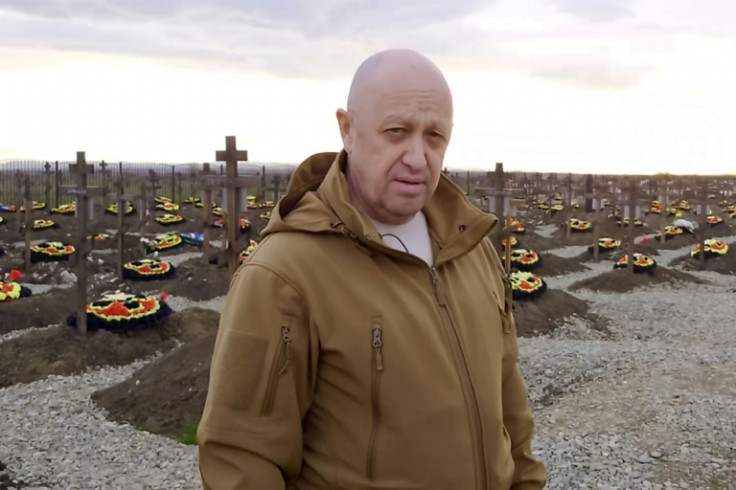UK declare that Wagner is a terrorist group
The UK have laid out a draft order that will see any assets of the Wagner Group as terrorist property and seized.

The Wagner Group, a Russian state-funded private military company that was formerly controlled by Yevgeny Prigozhin, is set to become labelled as a terrorist group by the UK government.
Yevgeny Prigozhin, who founded the group in 2014, had previously led a failed rebellion alongside other Wagner soldiers that set out to overrule Russia's military leaders.
The Home Secretary, Suella Braverman, said: "Wagner is a violent and destructive organisation which has acted as a military tool of Vladimir Putin's Russia overseas."
The UK government have since laid out a draft order in parliament that will see any assets of the Wagner Group as terrorist property and seized.
This decision comes after the UK and other NATO members called on Russia to abide by the International Humanitarian Laws that can be found in the four Geneva Conventions of 1949.
Following the penalisation of Russian President Vladimir Putin for his repetitive war crimes, the illegal behaviour has continued.
Just in: the Wagner group set to be declared a “terrorist organization by the United Kingdom 🇬🇧 ”. pic.twitter.com/CL5xNJDFa7
— N I L E_A L E R T S (@NILEALERTS) September 5, 2023
The Home Secretary alluded to Russia's stoppage of the Black Sea Grain Deal when she noted that Russia's brutal acts towards Ukraine and Africa were a "threat to global security".
Braverman also recognised that "Wagner's continuing destabilising activities only continue to serve the Kremlin's political goals".
"They are terrorists, plain and simple - and this prescription order makes that clear in UK law," she concluded.
Since the full-scale invasion of Ukraine in February 2022, the Wagner Group have played a key part in the war, with many members of the organisation being accused of a number of war crimes.
The crimes that the Wagner militants have been accused of include killing and torturing Ukrainian citizens.
While under the rule of Yevgeny Prigozhin, who was allegedly assassinated by Vladimir Putin in a mysterious plane crash on 23 August 2023, Wagner was operating in Syria and countries in Africa, including Libya and Mali.
This year, footage of Yevgeny Prigozhin recruiting serial murderers for the Wagner Group circled the web.
"Those who arrive and on the first day say, “I must’ve come to the wrong place,” are marked as “deserters,” and that’s followed by a firing squad.”
— Tomthunkit™ (@TomthunkitsMind) November 13, 2022
“Putin's chef” Yevgeny Prigozhin, who is also known as the owner of the Wagner PMC, recruiting inmatespic.twitter.com/F9H8h7UsKw 02
Prior to the Russia-Ukraine War, in 2020, the US declared that Wagner soldiers had planted landmines in regions that surrounded the Libyan capital Tripoli, with the UK also claiming in July 2020 that the group had committed "executions and torture in Mali and the Central African Republic".
The Wagner Group's infamous name will now be pasted alongside other organisations that have been dubbed terrorist groups in the UK, like Hamas which operates in the Gaza Strip of Palestine and Boko Haram which is based in North-East Nigeria.
The House of Commons Foreign Affairs Committee said that Wagner is an "international criminal mafia, fueling corruption and plundering natural resources", specifically in Africa where it protects several authoritarian leaders.
The Committee also recognised that "there are serious national security threats to the U.K. and its allies of allowing the network to continue to thrive".
The Committee also expressed that the Conservative government are late to "proscribe the Wagner Network as a terrorist organisation" after months of war crimes have ceaselessly been committed across the globe.
Earlier this year, Labour's Shadow Secretary of State for Foreign Affairs David Lammy urged the government to proscribe Wagner. Mr Lammy said that the group was "responsible for the appalling atrocities in Ukraine and across the world".
As the draft order was welcomed on Tuesday 5 September, Mr Lammy wrote on social media: "This is long overdue, but it's welcome the government has finally acted. Now the government should press for a Special Tribunal to prosecute Putin for his crime of aggression."
The Terrorism Act 2000 gives the Home Secretary the right to condemn any organisation that they believe is linked to terrorism.
Those who are proven to be members or supporters of the Wagner Group in the UK, will now also be criminalised, and convicted on the grounds of terrorism.
Offences linked to the proscription order are punishable by up to 14 years imprisonment or could lead to a fine of up to £5,000.
© Copyright IBTimes 2025. All rights reserved.






















